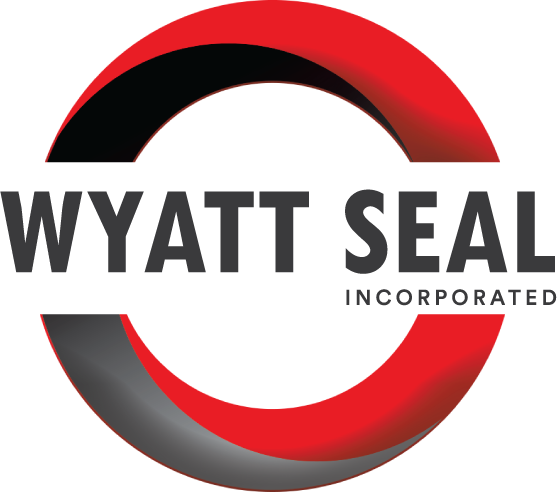Temperature and sanitation can negatively affect certain types of food-grade seals. Choosing suitable FDA-compliant materials for food-grade seals is crucial to preventing product contamination or seal failure due to varying temperatures in production or chemicals used throughout the production process.
In the food industry, FDA-compliant seal technology is the non-negotiable standard. Construction and seals must meet FDA requirements for food safety. Metal, plastic, and mechanical seals must be made from food-grade sanitary material, such as metal-detectable plastic or stainless steel.
The Food & Drug Administration (FDA) regulates the food and pharmaceutical industries to provide a layer of protection to the public from ordinary food and drug hazards. Even though the FDA is part of the U.S. government, FDA compliance regarding food grade seals is the worldwide standard.
In many cases, food-grade seals are installed with equipment steamed or cleaned in place, which means that the seals must also withstand high temperatures during the cleaning process.
How Steam Affects Seals
Seals exposed to high-temperature steam may become brittle, leading to tiny fractures that may result in cracked seals. They may also lose mechanical strength as they soften. Leaks resulting from faulty seals can limit operations and lead to serious safety concerns, damaged equipment, and less than ideal performance across the entire manufacturing operation. Leaks may also damage infrastructure, causing potential environmental damage, the cost of which can be prohibitively expensive for manufacturers.
How Chemicals Affect Seals
Hygienic seals in the food and beverage manufacturing industry must be able to withstand many challenges. Seals may be damaged by several chemicals, including oils, acids, sugars, and salts found in food and beverages. Seal failure could lead to contamination of the product, endangering consumers. The ability to run a production line uninterrupted is crucial to the operation's overall success, and chemical degradation of seals can cause problems that lead to extended downtime.
The chemicals used in the cleaning processes within a manufacturing plant may also compromise the integrity of food-grade and FDA-compliant seals. Aggressive chemicals may be necessary to remove sources of contamination after a process run, and the chemicals may react badly with sealing components, causing irreversible harm to the structural integrity of the exposed seals.
Chemical damage to seals may cause leaching, embrittlement, swelling, loss of mechanical strength, and failure. In addition to these dangers, fragments of the seal may break off, contaminating the product.
Food-Grade Seals Resist Damage From Cleaning Processes, Extreme Temperatures, and Chemicals
Over time, the food and beverage industry has increased the focus on safety and sanitation during the production process. Most sanitary issues and food contamination problems were caused by sealing materials made from poor-quality materials. Shifting from the use of gaskets and seals made from standard plastic materials to using food-grade and FDA-compliant seals and equipment helps save money during every phase of the manufacturing process.
Reducing the rate of contamination helps prevent costly problems:
• Lost production and downtime
• Equipment failure
• Compromised personnel safety
• Maintenance and operations labor costs
• Housekeeping issues
• Product waste
• Parts replacement costs
In severe cases of contamination, a processing plant may have to use large equipment like a crane to remove the contaminated equipment for repair or replacement.
FDA-Approved Food-Grade Seals Meet High Standards
Food-grade seals meet the FDA's rigorous standard of quality and cleanliness. They must perform in hostile environments that include varying temperatures in production, chemical exposure, and harsh cleaning processes. In the food-processing industry, high temperatures, chemical contaminants, steam, and other extreme conditions are part of day-to-day operations.
Food grade seals have quantitative requirements for their construction. Synthetic and natural materials used to create food-grade seals must be FDA-approved. The FDA also maintains strict limits on food-grade seals used with fatty or aqueous foods.
According to the Food Code, a food-grade seal is only considered food-safe if the FDA deems it compliant with their standards.
Silicone resists chemicals and extreme temperatures, and it does not react with food ingredients encountered during processing. Silicone sealing materials do not produce hazardous byproducts that could negatively affect workers or consumers. For these reasons, silicone seals are widely regarded as FDA-compliant and food-safe. However, while silicone's characteristics make it resistant and durable, silicone products are not automatically deemed as food-safe. They must still meet the FDA's standards.
It is important to consider all the variables that can affect food-grade seals, and it is crucial to utilize suitable FDA-compliant materials to ensure the safety of food-grade seals. For nearly 50 years, our customers have trusted Wyatt Seal to find solutions for even the most complex sealing conditions. For more information on how we can assist you with your food-grade seals, please contact us.

